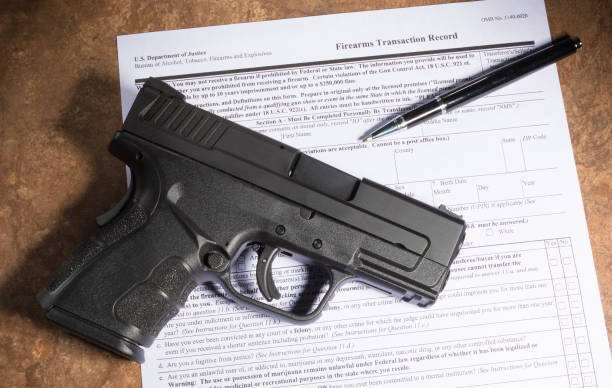
Arizona Car Seat Laws 2025

What are the Arizona car seat laws in 2025? At what age can you move a child out of a car seat? Arizona has strict seat belt laws that look to reduce the number of fatal accidents. In this article, we’ll cover Arizona seat belt laws, including the specifics of car seat laws and which passengers are required to be buckled in.
Arizona Car Seat Laws 2025
The car seat laws in Arizona are clear. According to ARS 28-907, all children under eight years old must have an appropriate car seat or booster seat. In addition, children under the age of four must remain in a rear-facing car seat.
 There are some exceptions to the above rules depending on your child’s age and weight. Infants and toddlers under the age of two must remain rear-facing until they meet weight and height limits. Children ages two to four must remain in a restraint system until they exceed the weight limit. Children between the ages of four and eight must use a booster seat until they are old enough to fit into a seat belt properly.
There are some exceptions to the above rules depending on your child’s age and weight. Infants and toddlers under the age of two must remain rear-facing until they meet weight and height limits. Children ages two to four must remain in a restraint system until they exceed the weight limit. Children between the ages of four and eight must use a booster seat until they are old enough to fit into a seat belt properly.
Failure to abide by these regulations can come with serious fines and penalties. Violating the above guidelines results in a civil penalty of $50. When selecting your car seat, it’s important to follow the manufacturing guidelines, including weight and height restrictions.
Arizona Seat Belt Laws
Arizona also has seat belt laws that motorists must abide by. The Arizona Department of Transportation requires that passengers under the age of 16 must wear a seat belt, even if they are not driving the vehicle. Drivers are required to make sure all passengers under the age of 16 are properly wearing their seat belts.
 Adults in the front seat must also wear a seat belt, regardless of age. However, passengers over the age of 16 who are sitting in the rear of the vehicle aren’t required by law to wear a seat belt. If you have a medical exemption, you may not be required to wear a seat belt. If this situation applies to you, you should carry a doctor’s note with you at all times.
Adults in the front seat must also wear a seat belt, regardless of age. However, passengers over the age of 16 who are sitting in the rear of the vehicle aren’t required by law to wear a seat belt. If you have a medical exemption, you may not be required to wear a seat belt. If this situation applies to you, you should carry a doctor’s note with you at all times.
Like car seat infractions, failure to wear a seat belt can also come with fines and penalties. The penalty for violating Arizona seat belt laws comes with a $10 fine. This fine applies to everyone in the vehicle who should have been wearing a seat belt. For example, if you have three passengers who are required to wear a seat belt, your fine would be $30.
Summary
 Following Arizona seat belt laws is important, especially if you are traveling with children. If you are pulled over for violating seat belt laws, it’s important to know your rights. Be sure all passengers are following the necessary seat belt laws and that your children are facing the right direction in their car seats based on their age and weight.
Following Arizona seat belt laws is important, especially if you are traveling with children. If you are pulled over for violating seat belt laws, it’s important to know your rights. Be sure all passengers are following the necessary seat belt laws and that your children are facing the right direction in their car seats based on their age and weight.
If you’ve received a fine or penalty related to a seat belt violation, reach out to our team at The Law Office of Zayed Al-Sayyed today.

Are Lawyers Allowed to Wear Hijab?
 Are lawyers allowed to wear hijab? What is the dress code in the courtroom? Do these laws vary by jurisdiction? Understanding the legality of religious coverings is important, regardless of whether you are a sitting judge, pursuing a law degree, or have an upcoming case. In this article, we’ll explore how the courts view hijab and the role of the court in determining appearances.
Are lawyers allowed to wear hijab? What is the dress code in the courtroom? Do these laws vary by jurisdiction? Understanding the legality of religious coverings is important, regardless of whether you are a sitting judge, pursuing a law degree, or have an upcoming case. In this article, we’ll explore how the courts view hijab and the role of the court in determining appearances.
Are Lawyers Allowed to Wear Hijab?
 Yes, lawyers are allowed to wear hijab. The Supreme Court ruled that courts cannot enforce blanket removal policies based on a judge’s demeanor or veracity, to identify witnesses, to identify and avert bias, or to compel accountability. A judge can request lawyers to remove a hijab for a reasonable reason; however, most courts will protect an individual’s religious freedom.
Yes, lawyers are allowed to wear hijab. The Supreme Court ruled that courts cannot enforce blanket removal policies based on a judge’s demeanor or veracity, to identify witnesses, to identify and avert bias, or to compel accountability. A judge can request lawyers to remove a hijab for a reasonable reason; however, most courts will protect an individual’s religious freedom.
Arizona has no specific laws preventing lawyers from wearing hijab. However, each court and judge may have differing rules and regulations that follow the Supreme Court’s ruling. Remember, the First Amendment of the Constitution protects religious freedoms, which includes religious attire and preferences.
What is the Role of the Court in Determining Appearances?
 The Supreme Court gives judges the ability to exercise “reasonable control” over the appearances in the courtroom. Most jurisdictions require lawyers to dress professionally to ensure decorum in the judicial process. There is no formal dress code, but lawyers may be asked to adjust their attire if deemed inappropriate.
The Supreme Court gives judges the ability to exercise “reasonable control” over the appearances in the courtroom. Most jurisdictions require lawyers to dress professionally to ensure decorum in the judicial process. There is no formal dress code, but lawyers may be asked to adjust their attire if deemed inappropriate.
Although there are no formal rules or regulations surrounding hijab color in the courtroom, industry practices suggest wearing a neutral color. Certain patterns and colors could cause distractions in the courtroom, which could result in the judge asking you to change.
Summary
Religious freedom protects lawyers’ rights to wear hijab in the courtroom. However, there are no blanket rules or regulations in place regarding hijab. Each court and judge will have the ability to express professional judgment when determining reasonable appearances. For more information about lawyer regulations and important legislation changes, check out our other posts.

What is the Gun Law in Arizona?
What is the gun law in Arizona? Are you considering purchasing a weapon? Arizona is one of the few states that allows residents to conceal carry a weapon without a permit. However, there are important restrictions to be aware of. Failure to abide by these regulations can result in serious fines and penalties.
In this article, we’ll explore Arizona’s gun laws in more detail, including examples of illegal firearm use and potential consequences for breaking Arizona laws.
What is the Gun Law in Arizona?
 Arizona allows residents to carry a concealed weapon without a permit. In addition, Arizona doesn’t require people to register guns purchased within the state or share identifying information. This applies to the ownership, purchase, sale, and transfer of firearms, including shotguns, rifles, and handguns. Anyone who is over the age of 18 can legally own a firearm.
Arizona allows residents to carry a concealed weapon without a permit. In addition, Arizona doesn’t require people to register guns purchased within the state or share identifying information. This applies to the ownership, purchase, sale, and transfer of firearms, including shotguns, rifles, and handguns. Anyone who is over the age of 18 can legally own a firearm.
Additionally, firearms are permitted in your vehicle if you are at least 21 years old. If you are between the age of 18 and 20 years old, you are not permitted to have a firearm in your vehicle. It’s important to note the difference in legislation without a permit. Individuals carrying a firearm without a permit must still comply with law enforcement demands after an officer has initiated an investigation, such as a traffic stop.
Examples of Illegal Firearm Use in Arizona

Even though Arizona allows residents to carry concealed weapons with no permit, there are still restrictions to be aware of. First, you cannot carry a firearm in a restricted area, such as airports, polling stations, school grounds, and certain retail stores. Bringing a firearm on school property is a class 6 felony, with up to one and a half years in prison.
Penalties for Illegal Firearm Possession in Arizona
Illegal possession of a firearm can come with serious fines and penalties in Arizona. For one, providing a firearm to someone with a known gang conviction is considered a class 3 felony. Similarly, possession of a firearm as a prohibited possessor is a class 4 felony, which can come with up to three years of prison time. Giving a firearm or ammunition to a minor can also come with consequences.
Many of the fines and penalties for illegal firearm possession depend on the type of offense. For example, discharging a firearm in a structure can result in 21 years in prison, while concealing a firearm as a minor is considered a misdemeanor with up to $500 in fines. Firearm rules and regulations can also differ by Arizona jurisdiction, making it important to verify the laws of your ordinance.
Summary
If you’ve been charged with a firearm violation, it’s important to reach out to a qualified lawyer right away. Our team at The Law Office of Zayed Al-Sayyed can help sort through the facts of your case, suggesting strategies and solutions to solve your firearm charges. Reach out today to schedule your free consultation.

What Happens If You Get into a Car Accident Without Insurance in Arizona?
What happens if you get into a car accident without insurance in Arizona? Do fines and penalties differ if you are at fault without insurance? Arizona has minimum insurance requirements for drivers. Not having the proper coverage can lead to some serious side effects, which is what we’ll discuss in this article.
Arizona’s Car Insurance Laws
Starting on July 1, 2020, all individuals driving on Arizona roadways must carry minimum insurance. This includes $25,000 of coverage for one person’s bodily injury or death in an accident and $50,000 for two or more persons. In addition, drivers must have $15,000 in insurance coverage for property damage.
Additionally, you can take out uninsured motorist and underinsured motorist coverage. These policies pay a portion of your medical bills or property damage when the other party does not have coverage. This type of policy is optional in Arizona.
The Repercussions of Driving Without Insurance
Driving without insurance can come with serious fines, penalties, and license suspension. Here’s what to expect per offense for driving without insurance:

- First Offense – The first offense will come with a $500 fine. In addition to the fine, Arizona may suspend your license, registration, and plates for up to three months.
- Second Offense – If you are caught driving without insurance for a second time within a three-year period, the fine increases to $750. Additionally, your license, registration, and plates will be suspended for six months.
- Third Offense – After three or more offenses within a three-year period, the fine increases to $1,000. Your driver’s license, registration, and plates will be suspended for one year.
With each of these offenses, you may also be required to obtain an SR-22 certificate. This document shows that you have the minimum insurance coverage according to Arizona law.
What Happens If You Get into a Car Accident Without Insurance in Arizona?
The above fines and penalties are increased when you are involved in an accident without insurance. First, the fines and penalties will apply regardless of who is at fault. For example, if someone hits your car and you don’t have insurance, you will be required to pay a minimum fine and your license might be suspended.
If the accident is your fault, you won’t have any insurance coverage to pay for damages. This means you will need to pay for these costs out of pocket. Additionally, any lawsuits brought against you will be your financial responsibility. Driving without insurance also makes it difficult to recover any type of compensation from the accident, even if you aren’t at fault.
Summary
Driving without insurance can have serious repercussions, especially if you were the at-fault party. Even if you had the proper insurance coverage, the other party’s lack of insurance can cause delays and headaches. Instead of trying to navigate the next steps after an accident without insurance on your own, contact our Phoenix car accident attorneys at The Law Office of Zayed Al-Sayyed. We can help you sort through your case to maximize your compensation.

What Are the Driving Laws in AZ? (2025)
Whether you are a resident of Arizona or just passing through, it’s important to know the driving laws you’re subject to. Failure to abide by Arizona’s driving laws could result in fines, penalties, and loss of license. In this article, we’ll cover the top driving laws you need to know in Arizona in 2025.
Arizona’s Move Over Law
Arizona’s Move Over Law requires motorists to clear the way for emergency vehicles when their lights are activated. For example, if an ambulance is driving in your lane, you are required to move into a different lane or stop on the shoulder. If you are unable to move, you are required to slow down.
Arizona’s Good Samaritan Law
If you notice a child or animal locked in a hot vehicle, you are allowed to break the glass under the Good Samaritan Law. This law protects you from any repercussions for acting in good faith. For example, the owner of the vehicle cannot pursue compensation for their broken window.
Arizona’s Stupid Motorist Law
The Stupid Motorist Law prohibits drivers from disobeying or passing through flood warning signs and barricades. For example, if the road floods and there is a sign up, you can’t drive your vehicle through the water. If you disobey signs, you will be liable for emergency service costs to rescue you.
Arizona’s Hands Off Law
Arizona’s Hands Off Law disallows the use of talking, texting, or any type of cellphone use while driving. This law is broad and covers all electronic devices, including handheld gaming devices and tablets. You also may not hold your phone between your head and shoulder while driving. Wireless calls are permitted.

Arizona’s DUI Laws
Arizona’s DUI laws follow those of countless other states, with a blood alcohol concentration of 0.08 or higher being considered illegal. However, Arizona authorities have the ability to convict you of a DUI with any amount of alcohol in your system if it is impairing your driving ability.
Arizona’s Vehicle Smoking Law
Although Arizona has talked about issuing a statewide ban on smoking in vehicles containing minor passengers, no legislation has passed. However, certain ordinances, like Tempe, have laws in place that give law enforcement officers the ability to issue fines for smoking with minor children in the vehicle.
Arizona’s HOV Lane Law
High-occupancy vehicle lanes are meant to expedite traffic for vehicles carrying two or more passengers. Some interstates have permanent HOV lanes, while others only allow use during high-traffic hours. Failure to abide by HOV lane regulations can result in fines and penalties.
Arizona’s Left Lane Laws
Arizona drivers must only use the left lane on multi-lane highways for passing. In addition, you must drive in the left lane faster than traffic in the right lane. If you don’t plan on passing a vehicle, you must stay in the right lane.
Summary
These are just a few of Arizona’s driving laws. If you’ve been involved in a car accident due to another driver’s negligence, reach out to our team at The Law Office of Zayed Al-Sayyed today. We want to help you get the compensation you’re rightly owed.

Is a Personal Injury Settlement Taxable in Arizona?
If you were recently in an accident, you might be wondering, “Is a personal injury settlement taxable in Arizona?” Personal injury settlements can contain payouts for different items, such as medical expenses, lost wages, and punitive damages. Each of these categories of compensation is treated differently under Arizona law. In this article, we’ll explore the tax implications of personal injury settlements.
Is a Personal Injury Settlement Taxable in Arizona?
Personal injury settlements are generally not taxable in Arizona or at the Federal level if the funds go toward covering the cost of your injury. This is the case regardless of the type of accident. This means that injury settlements for slip and fall injuries and car accidents are not taxable. However, if the settlement includes money for damages outside of medical costs, pain, and suffering, those amounts may be subject to tax.
What Types of Damages are Not Taxable in a Personal Injury Settlement?
Personal injury settlements look to cover the cost of emotional and physical injuries. This commonly includes medical expenses, like doctor’s visits, assistive medical devices, prescriptions, and physical rehabilitation costs.
Other costs, such as future medical expenses and pain and suffering, are also considered non-taxable. Emotional distress stemming from the injury is another non-taxable payment. It’s important to note that you can’t double-dip on medical expenses by claiming a deduction on your tax return and non-taxable income from the personal injury settlement.
What Types of Personal Injury Damages are Taxable in Arizona?
Depending on the facts of your case, you might receive additional compensation. One common payout is in the form of punitive damages, which punish the defendant for harmful behavior. This type of payment is seen as extra income, making it taxable in Arizona and at the Federal level.
Similarly, accrued interest on your settlement is also taxable. This often occurs when there is a lag between the settlement decision and the payout. Another taxable payment is from emotional distress that does not stem from a physical injury. You must link your emotional distress to your injury to claim non-taxable payments.
How Does Arizona Tax Lost Income in a Personal Injury Lawsuit?
Payments for lost wages due to injury are taxable in Arizona and on your Federal return. This is because the compensation you would have received would be subject to taxes. The IRS and Arizona tax this income as regular income.
Determining the Taxability of Your Personal Injury Settlement
When reporting your personal injury settlement on your tax return, it’s important to differentiate between taxable and non-taxable income. For one, your settlement documents should break out payments for each category. In addition, working with a qualified accountant can help you decipher the proper reporting protocol.
Summary
Did you receive a personal injury settlement in Arizona? Whether you are just starting the process of recovering damages or are in the final steps, it’s important to consult with a personal injury lawyer. Our team at The Law Office of Zayed Al-Sayyed is ready to help you maximize your personal injury settlement. Reach out today to schedule your free consultation.

How Long Does a No-Fault Accident Stay on Your Record in Arizona?
How long does a no-fault accident stay on your record in Arizona? Does it matter if you were at fault or not at fault? Will your insurance rates go up with an accident on your record? Each state and insurance provider has different regulations for handling accident reporting. In this article, we’ll cover Arizona’s stance on no-fault accidents.
How Long Does a No-Fault Accident Stay on Your Record in Arizona?
According to the Arizona Department of Transportation, convictions stay on your records for five years from the date of the conviction. However, less severe accidents generally remain on your record for only three years. More severe accidents like DUIs will remain on your criminal record permanently. Even if you aren’t found at fault in an accident, insurance providers factor the accident into your premiums for three to five years after the incident.
Do No-Fault Accidents Impact Your Driving Points?
Arizona does follow the point system for vehicle infractions. Acquiring eight or more points within a 12-month period requires you to attend Traffic Survival School and may result in a suspended license. Accumulating more than 24 points over a 36-month period results in a one-year suspension of your license. If you are not found at fault in an accident, your points should not be impacted.
Does Not Reporting an Accident Impact Your Record?
It’s common for no police report to be filed in minor fender benders. In fact, some accidents may not even warrant an insurance claim if the damage is minimal. When an accident isn’t reported to the police or your insurance carrier, it likely won’t appear on your driving record. However, Arizona does require a written report if the accident caused more than $2,000 in damage or resulted in injuries.
It’s also important to understand that auto body shops performing repairs on damaged vehicles may also report the damage. While auto body shops generally will not report damage to your insurance agency without your consent, any suspected fraud, irregularities, legal subpoenas, or identification of stolen parts may bypass the consent requirement.
Do Insurance Rates Increase After a No-Fault Accident?
Most people notice insurance premiums increasing following an accident, even if they are not at fault. This is because an accident on your driving record may indicate that you are more likely to be in another accident compared to someone with a clean driving record. To minimize any added risk of holding your policy, insurance providers will increase your premium. However, rate increases will be less severe if you do not cause the accident.
Summary
Were you recently involved in an accident in Arizona? Even if you aren’t at fault, there can be consequences for accidents when it comes to insurance and your driving record. Working with a qualified Arizona lawyer is the best way to navigate any side effects of a no-fault accident. Reach out to our team at The Law Office of Zayed Al-Sayyed today to schedule your free consultation.

How Long After an Accident Can You Sue in Arizona?
Were you injured in a slip-and-fall accident, car accident, or another incident? How long after an accident can you sue in Arizona? Understanding the timeframe you have to bring forward a lawsuit is important. After all, you might be rightfully owed compensation and damages for your injuries.
In this article, we’ll cover how long you have to sue in Arizona and the types of damages you can sue for. Remember, this article isn’t a substitute for professional advice. If you are looking for information related to your specific situation, reach out to our team at The Law Office of Zayed Al-Sayyed today to schedule your consultation.
How Long After an Accident Can You Sue in Arizona?
The statute of limitations in Arizona gives you two years from the accident date to bring a lawsuit forward. After the two-year period has passed, you lose your right to recover damages.
When Should You Bring a Lawsuit Forward?
The sooner you file your lawsuit, the better. If you wait until you are nearing the statute of limitations to bring your lawsuit forward, you risk your claim being thrown out. Filing just a few hours after the deadline could disrupt your entire claim.
Moreover, you will have a stronger case when you can gather fresh evidence. For example, a witness is more likely to remember key details of an accident that happened last week compared to a year and a half later.
What Damages Can You Sue For?
There are two types of damages that you can sue for in personal injury cases: punitive and compensatory. Punitive damages can only be awarded in a trial setting. This type of damage is generally only awarded when compensatory damages aren’t sufficient, such as the defendant’s reckless behavior resulting in serious injury. Punitive damages are based on the severity of the action, the financial status of the defendant, and the level of harm caused. Arizona does not cap the amount of punitive damages you can claim in a personal injury lawsuit.
The second type of damage you can sue for is compensatory. The goal of this payment is to make you “whole,” meaning to make up for the accident. Common examples of compensatory damages include lost wages, medical bills, pain and suffering, emotional distress, property damage, mental anguish, future medical care, legal fees, and inconvenience.
Summary
Do you want to file a lawsuit in Arizona? Whether you were injured in a slip-and-fall accident or hurt in a car accident, it’s important to recover damages owed to you. The two-year statute of limitations period can go quickly, making it important to reach out to a qualified lawyer right away. Contact our team at The Law Office of Zayed Al-Sayyed today to schedule your free consultation.

13 New Laws Go into Effect in Arizona on January 1
 2025 kicked off with 13 new Arizona laws going into effect as of January 1. Some of these provisions were passed through ballot measures during the 2024 election season, while others were passed by Arizona lawmakers. Here are the 13 new laws you need to know.
2025 kicked off with 13 new Arizona laws going into effect as of January 1. Some of these provisions were passed through ballot measures during the 2024 election season, while others were passed by Arizona lawmakers. Here are the 13 new laws you need to know.
Prop 139
Prop 139 extends fetal abortion from 15 weeks to fetal viability, which is about 23 to 24 weeks. This law also protects abortion access in instances where the mother’s life is in danger and offers more protection to healthcare providers offering abortion services.
Prop 206
Prop 206 increases the Arizona minimum wage to $14.70 starting January 1, 2025. The 2016 Fair Wages and Healthy Families Act required minimum wage increases based on the cost of living. Prior to the increase, the minimum wage was set at $14.35 in Arizona.
Prop 313
Prop 313 increases the minimum penalty for child sex trafficking offenses from seven years to life in prison. The life in prison sentence applies to anyone convicted of a Class 2 felony related to child sex trafficking. Convicted individuals are also ineligible for any form of release.
Prop 312
Prop 312 gives residents the ability to apply for a tax refund if their town is not taking care of illegal loitering, camping, and other nuisances. If the city rejects the refund, residents can take them to county or superior court.
Prop 311
Prop 311 created a new state death benefit for families of first responders killed in the line of duty. The death benefit is set at $250,000 and will be funded with a $20 penalty imposed on every criminal conviction.

Prop 314
Prop 314 makes it a misdemeanor to cross from Mexico to Arizona outside of a legal port of entry. This law also gives the police the ability to arrest those crossing the border illegally, and state judges have the power to order deportations.
ARS 42-6004 (H)
ARS 42-6004 (H) has been amended to eliminate the transaction privilege tax (TPT) on stays over 30 days. Each city had a different tax rate imposed. For example, Phoenix had a 2.3% tax. Landlords are required to drop the tax immediately, helping Arizona housing become more affordable.
ARS 28-1385
A new law lowered the DUI limit for rideshare drivers from 0.08% to 0.04%. This new law impacts Uber, Lyft, taxi, and limousine drivers.
House Bill 2042
The bill, known as the “Tamale Bill,” expands what type of food can be legally sold from home kitchens. Cooks who have a valid registration with the state health department and take a food preparation course can sell products made with meat in personal kitchens.
Senate Bill 1358
Senate Bill 1358 now allows pension and annuity plans to withhold state income tax on lump-sum distributions, helping retirees avoid large tax bills in April.
 House Bill 2325
House Bill 2325
This bill allows homeowners to have up to six chickens in a single-family home. Roosters are still not allowed.
House Bill 2040
House Bill 2040, which is dubbed the “Taylor Swift Act,” prohibits the use of bots to purchase live-event tickets in certain situations. This follows Ticketmaster’s website crash back in 2022 when fans tried to purchase Swift tickets.
Arizona Names an Official Planet
Arizona declares “Pluto” as the official state planet. Pluto was discovered in Flagstaff’s Lowell Observatory in 1930.
Summary
These 13 laws are only a handful of the new laws going into effect in Arizona. For more information about how these laws impact you, reach out to one of our team members at The Law Office of Zayed Al-Sayyed today.

How Long Do You Have to File a Personal Injury Claim in Arizona?
 How long do you have to file a personal injury claim in Arizona? Unfortunately, accidents do happen. When you’ve been involved in an accident, it’s important to understand how long you have to file a personal injury claim.
How long do you have to file a personal injury claim in Arizona? Unfortunately, accidents do happen. When you’ve been involved in an accident, it’s important to understand how long you have to file a personal injury claim.
Knowing the statute of limitations for different claims helps ensure you submit a claim for damages rightfully owed to you. In this article, we’ll cover everything you need to know about filing a personal injury claim in Arizona.
Why Does Arizona Have a Statute of Limitations?
The statute of limitations is the amount of time you have to bring a lawsuit or claim forward. Since Arizona is a fault-based state, you must prove that another party’s actions caused your injuries in order to recover damages. In many cases, personal injury claims are paid out through insurance carriers. However, if you can’t reach an agreement, you may need to file a personal injury claim.
The statute of limitations is in place in Arizona to encourage prompt settlement of disputes, prevent someone from using the legal system to bring up old matters, and prevent court backups. For example, evidence can be lost or destroyed over time. The statute of limitations ensures that lawsuits are brought forward timely to leverage available evidence.
How Long Do You Have to File a Personal Injury Claim in Arizona?
 The statute of limitations is generally two years from the incident date in Arizona. This deadline includes injuries related to dog bites, bike accidents, wrongful deaths, truck accidents, slip and fall accidents, car accidents, motorcycle accidents, and medical malpractice.
The statute of limitations is generally two years from the incident date in Arizona. This deadline includes injuries related to dog bites, bike accidents, wrongful deaths, truck accidents, slip and fall accidents, car accidents, motorcycle accidents, and medical malpractice.
There are some exceptions to the two-year statute of limitations. First, the Arizona Tort Claims Act reduces the timeline you have to file claims against government entities. A notice of claim against a government entity or employee must be filed within 180 days of the injury or accident. If your notice of claim is denied, you have one year to file a formal lawsuit.
Another exception occurs when a minor is involved. Since minors do not have the legal capacity to file a lawsuit, they must wait until their 18th birthday. The statute of limitations then begins on their 18th birthday. However, parents and guardians of minor children are allowed to file personal injury lawsuits on the child’s behalf.
The Impact of the Discovery Rule on the Statute of Limitations
Another notable exception to the two-year statute of limitations is found under the Discovery Rule. This rule extends the timeline for filing a lawsuit or claim until the injury is discovered. This commonly applies to medical malpractice claims. Let’s say a surgeon makes a mistake during a procedure that results in harm, but you don’t know about the injury until one year later. In this case, you will have two years from the date you discovered the injury to file a lawsuit.
Summary
Do you believe you have a personal injury claim? If so, contact our team at The Law Office of Zayed Al-Sayyed today to schedule your free consultation. We can help you sort through the facts of your case to maximize your settlement.
